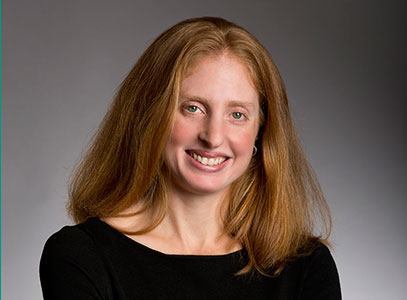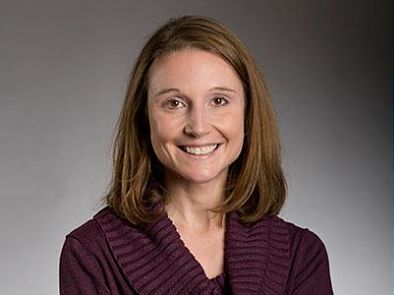
Tamara Beauboeuf-Lafontant is a visiting scholar at the Wellesley Centers for Women (WCW) for the 2013-2014 academic year while on sabbatical from her position as professor of women's studies at DePauw University in Greencastle, IN. She holds an AB in English literature from Bryn Mawr College, an MA in Africana Studies from Cornell University, and an Ed.D. in Human Development and Psychology from the Harvard Graduate School of Education.
Dr. Beauboeuf-Lafontant is a feminist sociologist with interests in racialized gender, embodiment, girlhood, and alternative femininities. Her research, which has been published in Teachers College Record, The Urban Review, Meridians, Gender & Society, and Qualitative Sociology, has examined teachers’ negotiations of race and gender in their identities and pedagogy, and the incorporation of feminine standards of goodness into the body and psyche. The latter is most recently investigated in her book, Behind the Mask of the Strong Black Woman: Voice and the Embodiment of a Costly Performance (Temple University Press: 2009).
During her time at WCW, Dr. Beauboeuf-Lafontant is working on a book manuscript focused on the rise of the “school girl” and the “college woman” as social identities, and their developmental and ethical impact on the lives and work of a group of Progressive Era social reformers.

Former co-director of Open Circle
Nova Biro, M.B.A., served as Open Circle co-director from 2009 to 2017, after initially joining as director of finance and operations in 2007. Her experience includes more than fifteen years in leadership, program management, partnerships, finance and marketing in both the education and technology fields. Prior roles include Senior Product Manager at Yahoo!, Co-Founder and Director of Product Management at TradeInteriors.com and Strategy Consultant at Gemini Consulting. She is the proud mother of twin girls, who loved attending an Open Circle elementary school.
Biro holds an M.B.A. and a Certificate in Public Management from the Graduate School of Business at Stanford University and also holds bachelor's degrees in Economics from the Wharton School and Systems Engineering from School of Engineering and Applied Science at the University of Pennsylvania.
Supporting Social-Emotional Learning in Massachusetts. Moderated full-day workshop. Open Circle and Apperson, Inc. Wellesley, MA. January 2016.
Collaboration to Achieve Whole School SEL Across a Large, Urban District. Paper presentation, Society for Research on Educational Effectiveness Fall 2014 Conference, Washington, DC. September 2014.
The Importance of Social and Emotional Learning to Boston Schools. Testimony for Boston City Council Docket #0451. Boston, MA. December 2012.
Open Circle’s Best Practices for Social and Emotional Learning. Presentation to the Massachusetts Department of Elementary and Secondary Education. Malden, MA. March 2011.
Recent funding secured for Open Circle includes grants from NoVo Foundation, Templeton Foundation (in partnership with Greater Good Science Center), Partners HealthCare (in partnership with Boston Public Health Commission) and program fees from over 200 schools.
Porche, M., Grossman, J., Costello, D., Biro, N., MacKay, N., Rivers, S. April 2015. Collaboration to Enhance Whole School Social and Emotional Learning for Elementary Students. American Educational Research Association 2015 Annual Meeting.
Porche, M., Grossman, J., Biro, N., MacKay, N., & Rivers, S. September 4, 2014. Collaboration to Achieve Whole School SEL Across a Large, Urban District. Society for Research on Educational Effectiveness Fall 2014 Conference.
Co-authored several Open Circle publications, including the Open Circle Curriculum Grades K-5, Open Circle training manuals and assessment tools, Open Circle quarterly e-newsletters, and several white papers: Helping Children Deal with Traumatic Events, Open Circle and DESSA Alignment, Open and PBIS, Reinforcing SEL Schoolwide, SEL Best Practices.
Founding steering committee member, SEL Alliance for Massachusetts, 2013 to present.
Board member, World of Wellesley, 2015 to present.
Alumni, LeadBoston, Class of 2013.
Participant, SEED Seminars hosted at the Wellesley Centers for Women, 2015 to present.

Research interests include youth and adolescent development with a focus on physical activity, healthy eating, and out-of-school time.
Kristen Fay Poston, Ph.D. was a research scientist at the National Institute of Out-of-School Time (NIOST) for several years through 2016, and a visiting lecturer in the psychology department at Wellesley College. She remains in the latter position where she teaches courses in adolescent and adult psychology. Her research focused primarily on identifying and describing the individual and contextual factors that influence developmental trajectories of positive psychological and physical health among adolescents, most specifically with regard to weight regulation and perception, dietary habits, eating attitudes and behaviors, and patterns of physical activity. She usef an interdisciplinary approach that integrates psychological theories with nutrition science, education, public health, and psychiatric perspectives. Methodologically, Poston has worked with a variety of longitudinal and cross-sectional data sets.
Poston earned her bachelor of arts degree in psychology from Wellesley College and earned her Master’s degree and doctorate in applied child development from Tufts University.
Poston was the principal investigator of a mixed methods evaluation of an afterschool and summer program designed to measure academic and psychosocial outcomes among middle school youth enrolled in the program. She also collaborated with the Providence Afterschool Association (PASA) on their Badging Initiative. Poston was a member of the NIOST research team evaluating the impact of a before-school physical activity program on children’s learning and non-learning outcomes. She was also a member of the team evaluating the Boston and Beyond Summer Learning Project, an integrative summer program that unites Boston Public Schools with community-based organizations to promote improved learning and non-learning outcomes among urban youth.
Prior to joining NIOST, Poston held research appointments at the Institute for Applied Research in Youth Development at Tufts University and at the Massachusetts General Hospital Eating Disorders Clinical and Research Program in Boston. She has also taught courses in adolescent psychology at Boston College’s Lynch School of Education.
Executive Director of WCW, 2012-2025
Womanism Research Initiative

Kelsy Kretschmer holds a Ph.D. in sociology from the University of California, Irvine, an M.A. in sociology from the University of California, Irvine, and a B.A. in sociology from the Oregon State University.
Dr. Kretschmer’s work focuses on the boundaries within and between organizations in the context of the contemporary women’s movement in the United States. She is primarily concerned with how new organizations emerge from existing ones, and how this relationship affects the structure of the continuing organizations, and the structure of the broader social movement they continue to share. In pursuing these interests, she has studied the National Organization for Women and the organizations it has spun off, including Women’s Equity Action League, Feminists for Life, Legal Momentum, and Human Rights for Women, to name a few. Based on a variety of data, including interviews, archival materials, and secondary sources, she has developed a model for understanding the sometimes surprising outcomes for the parent-breakaway relationship. This project provides useful insights into the coalition politics of social movements, where a breakaway organization’s ability to cooperate with its parent will affect the success and public reach of the broader movement. It also contributes to the sociology of gender and inequality by asking how inter-organizational relationships shape feminism as both an ideology and a political movement in the United States.
Dr. Kretschmer has presented parts of this project in a variety of forums, including the American Sociological Association, Pacific Sociological Association, and the Young Scholars in Social Movements conference at Notre Dame University. Her work has been published in Sociological Perspectives and the American Behavioral Scientist. Her article, “Contested Loyalties: Dissident Identity Organizations, Institutions, and Social Movements” was recognized by the Pacific Sociological Association as a Distinguished contribution to Sociological Perspectives in 2010. In this article, Kretschmer compares two organizations with origins in NOW: Catholics for a Free Choice, a pro-choice Catholic organization, and Feminists for Life, a pro-life feminist organization. The central question in this article is, why has Catholics for a Free Choice been more successful than Feminists for Life in bridging two ostensibly incongruent identities? Because feminism is far less monolithic than the Catholic Church, we would expect that Feminists for Life (FFL) would have greater success in building partnerships with other feminist groups, but, surprisingly, FFL has not done so. While feminism may lack the central authority and structure of Catholicism, there is consensus among movement actors about abortion rights. For FFL, abortion rights became a litmus test for exclusion from the feminist movement. Now, FFL works mainly with religious pro-life groups and while this decision was necessary, it has further hurt its feminist credibility. She also find that despite the Catholic Church’s centralized authority, its tradition of dissent gives some measure of credibility to Catholics for a Free Choice and provides it with a community of other dissident Catholic organizations to partner with.
Dr. Kretschmer has also taught a variety of courses, including Political Sociology, Introduction to Sociology, and Social Problems. While at Wellesley College, she is teaching a course on the status of women and the women’s movement in the U.S. for the Writing Program.